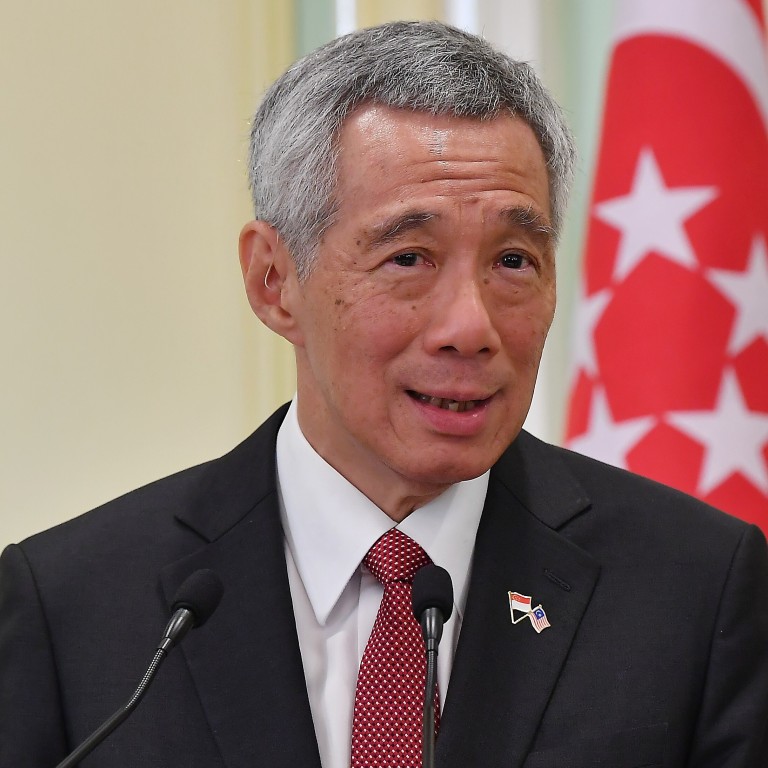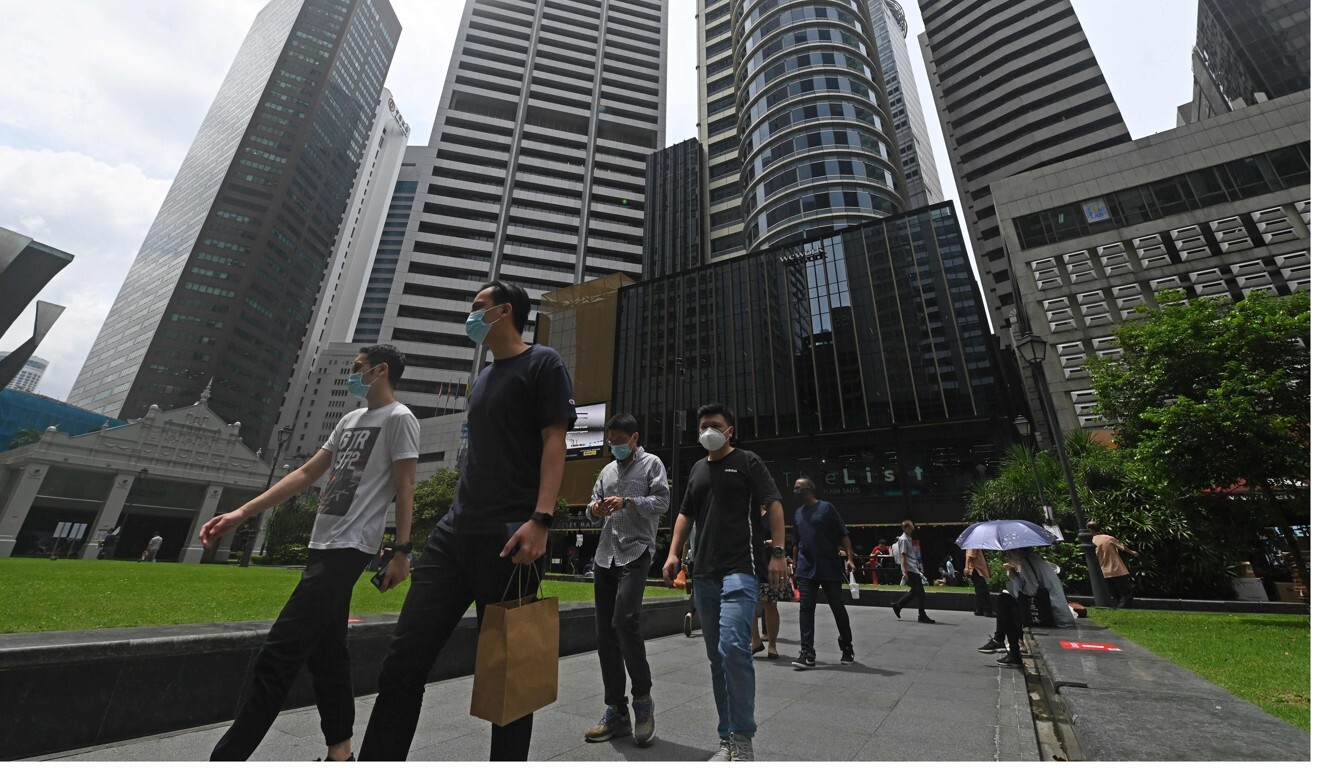
Singapore to adjust foreign worker policies to address job concerns amid pandemic
- Prime Minister Lee Hsien Loong said in a televised message ahead of National Day that Singapore must manage the quality and numbers of foreigners
- He said the Covid-19 pandemic has ‘strained fault lines’ in society, mentioning incidents of racial and religious intolerance
The government is aware such anxieties over the foreign worker population have worsened because of uncertainties caused by the Covid-19 pandemic, and authorities are addressing them, Lee said in a televised message on the eve of the country’s 56th National Day.
Other tough issues that have come to the fore during this period and which need to be dealt with are support for low-wage workers and the challenge of maintaining racial harmony, he said.
“We have to adjust our policies to manage the quality, numbers and concentrations of foreigners in Singapore,” Lee said. “If we do this well, we can continue to welcome foreign workers and new immigrants, as we must.”
Singapore’s expats wait anxiously as city mulls reopening
Just under 30 per cent of Singapore’s 5.7 million population are non-residents, up from around 10 per cent in 1990, according to government statistics.
The number of people living in Singapore declined 0.3 per cent last year, the first drop since 2003, as travel curbs and job losses brought about by the pandemic pushed foreign workers from the country.
Singapore’s success as a financial hub has long been tied to its openness to global talent, and the island’s low taxes and modern infrastructure make it one of the most attractive places in Asia to do business, particularly as Hong Kong gets caught in the crossfire of US-China tensions.
But foreign labour has also been a flashpoint for over a decade amid competition for good jobs and better wages, putting the government constantly under pressure to explain its approach.
“Turning inwards is against our fundamental interests,” Lee said. “It would damage Singapore’s standing as a global and regional hub. It would cost us jobs and opportunities.”

The island’s economy is forecast to rebound 4 to 6 per cent in 2021, with the projection due to be revised this month. After recent virus outbreaks forced Singapore to delay its plans for reopening the economy, officials on Friday announced an easing of restrictions on daily life as well as a slight loosening of border controls, with over two-thirds of the population fully vaccinated.
“We are in a more resilient position,” Lee said. “We can now look forward to a careful, step-by-step reopening of our economy.”
Even as Singapore moves toward a new normal, Lee said the pandemic has “taken a toll on all of us” and “strained fault lines in our society”. He highlighted a need to support lower-wage workers who have suffered the impact most acutely, and who will need sustained backing as Singapore becomes a more skills-based economy.
‘Why is this still happening?’: racist episodes spark soul-searching in Singapore
Lee also spoke about recent incidents of racial and religious intolerance, saying that “maintaining social harmony takes unremitting work”.
The country prides itself on its multiculturalism, he said, with its people ingrained especially since independence to set aside such differences to ensure peace and prosperity.
“It took several generations of sustained effort to bring our races and religions together, and grow the common space that we now share,” Lee said, adding that it is the government’s duty to manage the balance of social cohesion.
“With every new generation, our racial harmony needs to be refreshed, reaffirmed, and reinforced,” the prime minister said.
Additional reporting by Reuters

